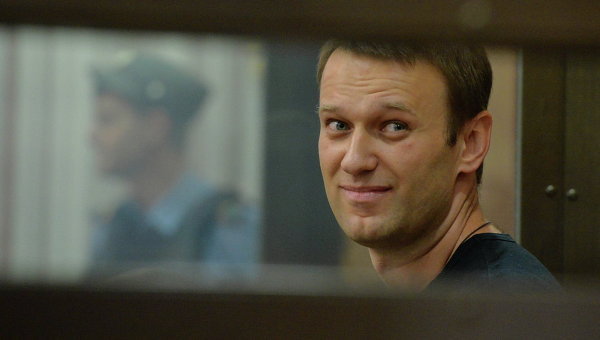MOSCOW, June 15 (RAPSI) - The Kirovles timber company has filed a claim seeking more than 16 million rubles in damages (about $280,000) from opposition politician Alexey Navalny and two other defendants earlier convicted in embezzlement case, spokesperson for Moscow’s Nikulinsky District Court Alyona Samokhodkina.
Two other defendants in the lawsuit are Pyotr Ofitserov, ex-director of Vyatka Timber Company, and Kirovles ex-CEO Vyacheslav Opalyov.
A conference on the claim has been scheduled for June 29.
On February 8, Navalny was convicted of organizing embezzlement of 16 million rubles at the Kirovles timber company for the second time and received a 5-year suspended sentence, while another defendant in the case, Pyotr Ofitserov, received a 4-year suspended sentence. Additionally, they were fined 500,000 rubles ($8,500) each.
According to investigators, while serving on a voluntary basis as an adviser to the Kirov Region governor Navalny organized the theft of over 10,000 cubic meters of timber from Kirovles company between May and September 2009.
Investigators claimed that Pyotr Ofitserov, then Director of Vyatka Timber Company, and Kirovles CEO Vyacheslav Opalyov were involved in the scheme. Proceedings against Opalyov were treated as a separated criminal case after he had admitted his guilt.
Navalny was given a five-year suspended sentence for embezzlement at the Kirovles timber company in July 2013. Later, Moscow's Lyublinsky District Court increased a probation period for him to 5.5 years. Ofitserov received a four-year suspended sentence.
In February 2016, the European Court of Human Rights (ECHR) held that the applicants’ right to a fair trial had been violated and ordered Russian authorities to compensate Navalny with €48,000 of legal costs and Ofitserov with €22,000. Additionally, Russia was obliged by court to pay 8,000 euro each in damages.
In November 2016, the Supreme Court overturned sentences against Navalny and Ofitserov in Kirovles embezzlement case and sent it for retrial. The court delivered the ruling taking into consideration the judgment of the European Court of Human Rights (ECHR).



